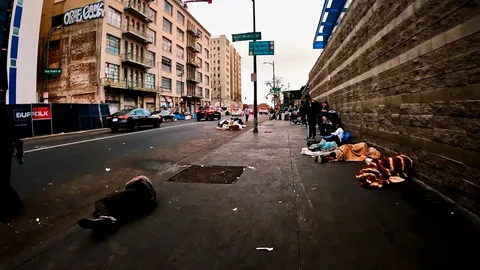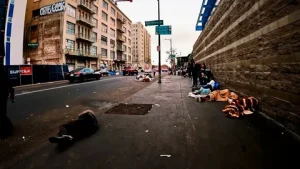
The Psychological Impact of Revenge
“Livin’ on the Edge” gives us a powerful lesson about the psychological impact of revenge. It shows how revenge can consume our minds, damage our relationships, and lead to more violence.

Life in the streets is often filled with danger, poverty, and tough choices. In “Livin’ on the Edge” by Rodney Virgil, we get a close look at what it is like to live in a rough neighborhood. The main character, Jaquan Miller, has to face many challenges that are common in such environments. His story helps us understand the harsh reality of life on the streets.
In many poor neighborhoods, opportunities are limited. Jaquan’s mother works hard to provide for him, but it is not enough. She works two jobs, yet they still struggle to make ends meet. This lack of resources pushes many young people, like Jaquan, to look for other ways to survive. Often, this means turning to illegal activities, such as selling drugs or joining gangs.
For Jaquan, the death of his mother is a turning point. He is left with few options and no one to guide him. His cousin D-bo, who is involved in the drug trade, becomes his mentor. This relationship pulls Jaquan deeper into the criminal world. The streets offer a sense of belonging and a way to make money, but they also come with great risks.
Violence is a constant threat in Jaquan’s world. The book shows how quickly situations can turn deadly. When Jaquan decides to take revenge on Sam, he enters a dangerous game. He is risking his life and the lives of those around him. In neighborhoods like Jaquan’s, violence can erupt over small disputes, and the consequences are often severe.
The police are also a constant presence but are not always seen as protectors. In many poor neighborhoods, there is a mistrust of law enforcement. People like Jaquan and his friends see the police as another threat. This mistrust is built on years of negative experiences, including harassment and brutality. This dynamic makes it even harder for young people to find a way out of the cycle of crime and violence.
Education is another challenge. Schools in poor neighborhoods often lack the resources needed to provide a good education. Jaquan is a talented football player, but the struggles in his personal life make it hard for him to focus on his studies. Many young people in similar situations drop out of school because they do not see it as a viable path to success. Without education, their options become even more limited.
Family plays a crucial role in shaping the lives of young people in these environments. Jaquan’s mother tries her best to steer him away from trouble, but her death leaves him vulnerable. His relationship with his cousin D-bo highlights the influence that family members can have. In the absence of positive role models, young people often turn to those who are involved in crime.
The book also shows the emotional toll of living in such a harsh environment. Jaquan is haunted by the death of his mother and the violent acts he commits. He struggles with feelings of anger, guilt, and sadness. This emotional burden can be overwhelming and leads many young people to make desperate decisions.
Despite the challenges, there are moments of hope and emotional strength. Jaquan’s relationship with his friends, girlfriend, and grandmother shows that love and support can be found even in the toughest circumstances. These relationships provide some stability and comfort in an otherwise chaotic life.
“Livin’ on the Edge” paints a vivid picture of the harsh reality of life in the streets. It shows how limited opportunities, violence, mistrust of the police, poor education, and the influence of family can shape the lives of young people. Jaquan’s story is a reminder of the challenges faced by many in similar situations. It also highlights the importance of providing support and opportunities to help young people find a way out of the cycle of crime and violence.
Life on the streets is tough and filled with challenges. Jaquan’s journey in the book helps us understand these difficulties. It is a call to action to provide better resources and support for those living in poor neighborhoods. Addressing these issues can help create a safer and more hopeful future for young people like Jaquan.

“Livin’ on the Edge” gives us a powerful lesson about the psychological impact of revenge. It shows how revenge can consume our minds, damage our relationships, and lead to more violence.

It is a call to action to provide better resources and support for those living in poor neighborhoods. Addressing these issues can help create a safer and more hopeful future for young people like Jaquan.